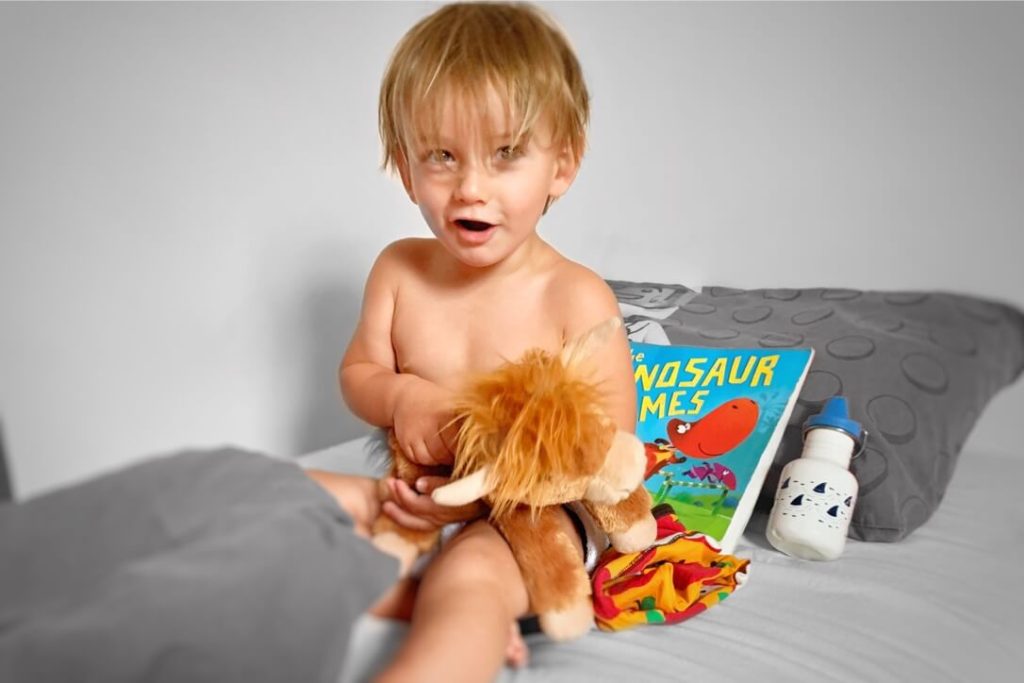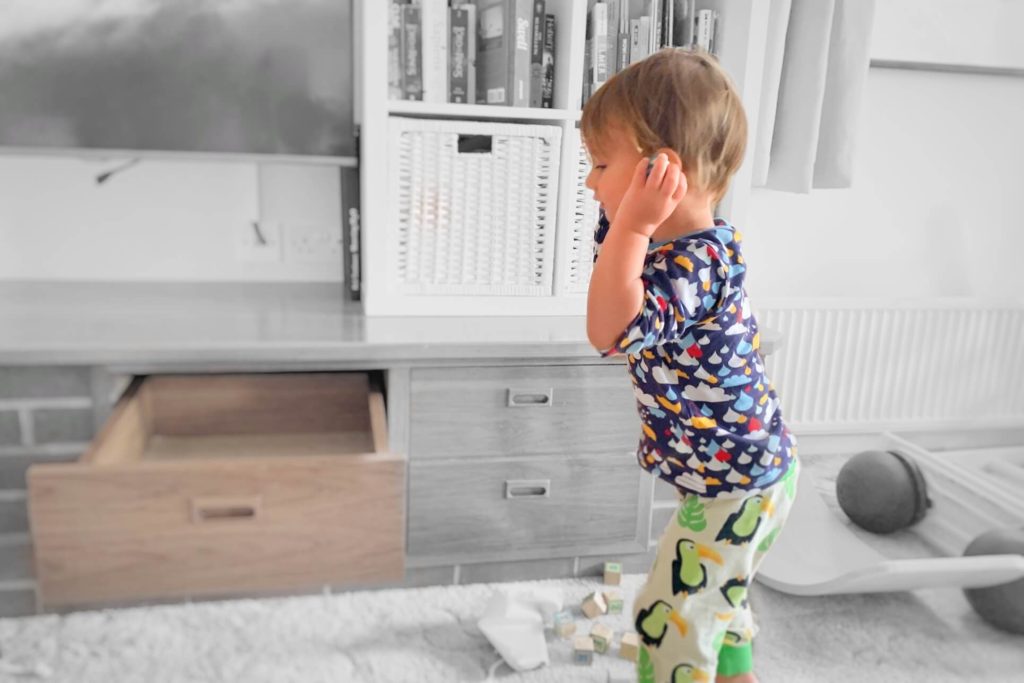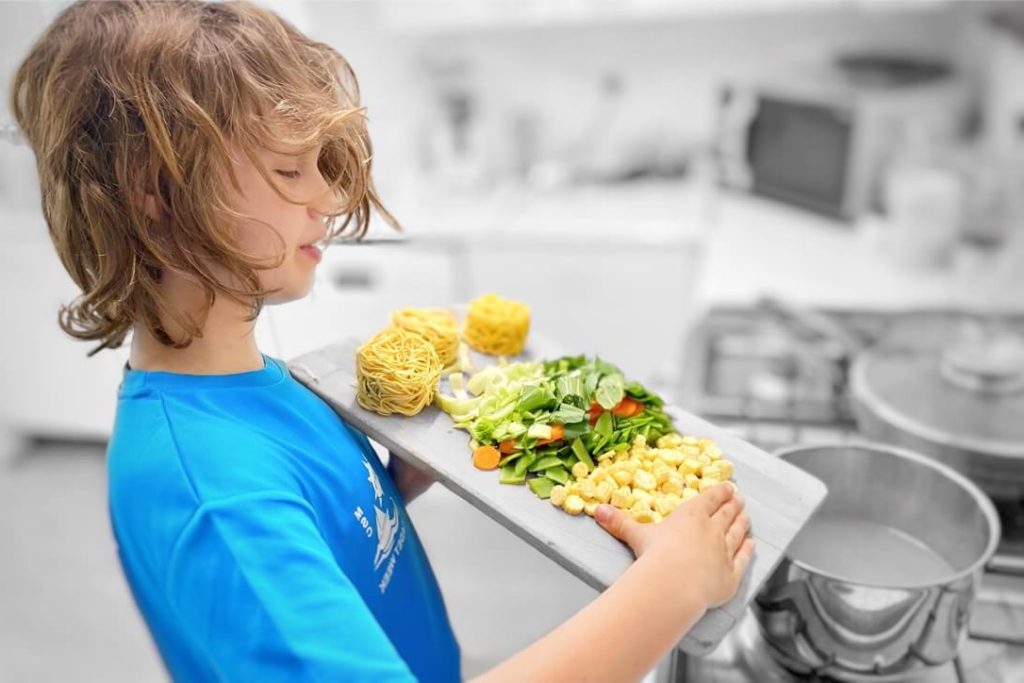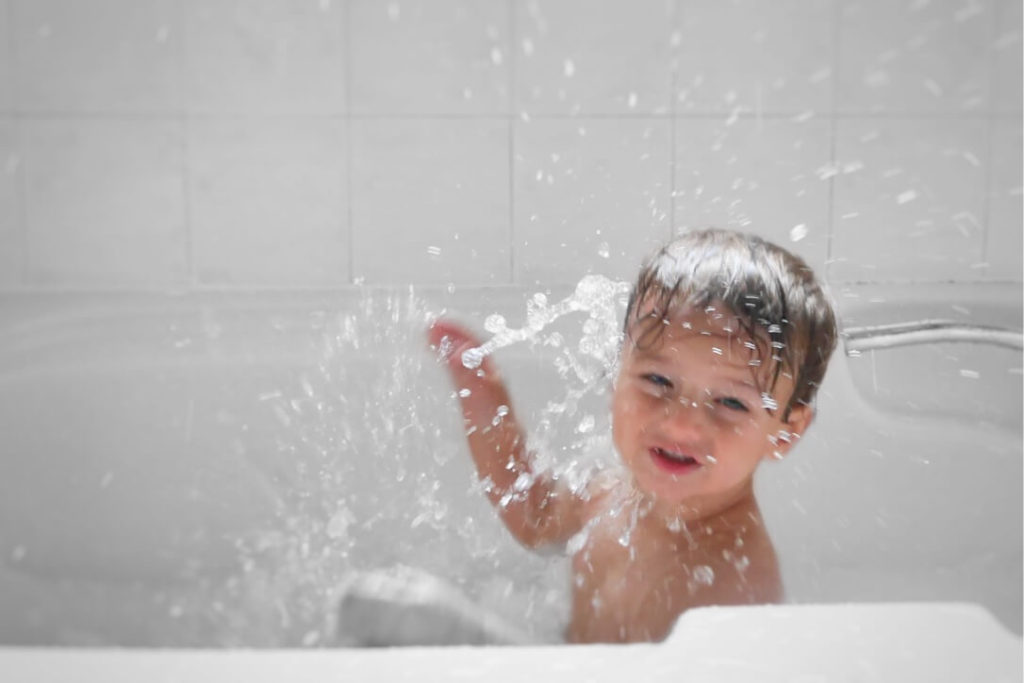Simple Parenting Tips: Treasure The every Day Moments!
Being a Mum is hard! Focussing on simple parenting has turned everyday battles into times I treasure. Today we are going to look at how to take the bits of the day you and your kids struggle with and then apply the minimalist principle of simplifying to make them joyful. I want you to look forward to spending time with your kids at bedtime, tidy up time, meal times, bath times and getting them ready in the morning.
I know you’ve got this, so pick the area you’re struggling with most, or pick an easy win and let’s go!
This article may contain affiliate links, for full info please see my disclaimer here.

Simplicity For Kids at bedtime
So much of making bedtime simple is about routine! When the kids know what to expect and what comes next, we start programming their brains to get sleepy. (The same trick works on adults too!) A consistent bedtime helps, but varying from it when life happens or someone has a late danger nap doesn’t hurt, especially if you keep the routine the same.
Before you start: set the scene. It helps children know what’s next when they return from their bath to their bedroom and their bed is made up with their PJs, night nappy, a book, a drink and their favourite cuddly toy, with the curtains drawn and the lights dimmed. Low lighting helps the pineal gland in our brains to produce the right hormones to help sleep.
Kid’s are never too young to start a bedtime routine, our youngest, Archi, has had this same bedtime routine since he was a few days old:
1. Bath – getting into bed nice and clean is one of life’s treats, right! I’ve written about this in more detail here.
2. Story – Kid’s love a good story. It helps them to disconnect from all the “busyness” and emotions from earlier in the day and transition between day and night (I find stories help with any transitions!)
3. Put on PJs and a night nappy – Now sometimes this can turn into a struggle, so I like it early in the routine. Encouraging them to help / do this independently with you as cheerleader often helps.
4. Another story – to help calm and reconnect.
5. A song – using the same one helps programme the brain for sleep – we love Twinkle, Twinkle, Little Star (although theres some interesting research about U2’s One if you’re not a traditional lullaby sort of person).
6. Say goodnight – we say goodnight to about 7-8 things we can see in the room. Again these are the same every night, then end with goodnight World, goodnight Mummy, Goodnight Archi. With a Child above about 5 this could be switched to I love you because … (one from each of you) then say goodnight to each other.
7. We then stay for Archi as he needs the reassurance, but our older son Teddy stopped needing that at about 7. When Archi was younger this is when I would breastfeed him.
8. Breathe and enjoy the peaceful atmosphere you’ve just created, then delve into a book of your own. (you may need a book light) until they are away in the land of nod.
If they resist sleeping, (which often seems to happen when you have a million things to get done), stay as relaxed as possible – it will help! They won’t sleep if you are excited, or agitated. Repeat the song and goodnights and continue to be with them. Stick with the routine. Creating predictable simplicity for kids goes a long way towards getting them to sleep without a fuss. If you’re still struggling I’ve got a longer article on bedtimes coming soon that can help you with more ideas.

Simple Parenting hacks to get kids to Put away Toys
Tidying up is hard for kids, and often comes at a time when they are tired or hungry or wanting to do something else entirely. Let’s simplify the process: make it age-appropriate, make it easy, and make it fun!
Ensure your expectations are age-appropriate. Even babies, from around 6 months old can have fun with “pick it up and put it in” – and voila, you have started teaching them to tidy up! From when they start walking they can definitely be working up to putting away their toys. After this age, you’ll need to judge your level of input based on your child and how they are feeling that day and how much tidying needs to be done. The bigger the job, the harder the day they are having, the more input they will need.
Make it easy. Firstly meet them where they are. Connect with them, join in their game for a minute or two before asking them to tidy up. This lets you gauge how long they need to transition to a different task and helps them to feel understood. Use simple, positive language, for example, “let’s get this place looking sparkly”, rather than “oh, what a state” (even if it’s what you are thinking). This helps to build happy associations.
Make sure everything has a home. It’s tough to put things away when you don’t know where “away” is. Homes for the toys shouldn’t require an engineering degree to stack them to fit. Ensure that the toys fit in super easily. Bring the boxes close to the toys to make it easy. Similarly, there’s less to tidy up if there aren’t too many toys out. For this reason, I’m a great fan of toy rotation.
As Mary Poppins sings, “In every job that must be done there is an element of fun, you find the fun and snap the job’s a game”. Make tidying up fun, it’s simple, I promise. Sing (I even sometimes sing Mary Poppins songs when I’m struggling!), join in with them, dance, have a race. I adore making the toys talk as I put them away – “Now where do you belong Mr. tiger”, “Mummy I like to sit on the shelf, with the elephant, she’s my best friend, please let me sit with her”. Whatever game you think of will help them feel good about tidying up.
Remember, you are playing the long game with this one. You are slowly teaching them good habits around tidying up using simple parenting. Keeping them feeling positive about it is the most important thing! Make it part of their daily routine twice per day – maybe before lunch and before dinner and you’ll have lots of opportunities to practice!
Soon I’ll be writing more about simple parenting tidying up strategies to make tidying up a breeze, watch this space.

Keeping Meal times Simple and Fun
Meal times are a fantastic time to connect with your kids as they bring us all around the table together. In our busy lives juggling tired, hungry kids, whilst trying to whip up a delicious, nutritious meal, get it plated and on the table can leave everyone feeling a little frazzled. So read on and let’s work together to simplify and find joy with my parenting guide to meal times.
Firstly, keep things simple. A weekly meal plan that repeats, means everyone knows what’s coming. When you get bored with a meal, or if it’s not a hit, change it, it’s not carved in stone. The joy of simple parenting is taking what works for you and leaving the rest. I find putting the toddler in a sling on my back stops him demolishing the house because he’s tired and I chat to him about what I’m doing. I try to get Teddy, my 12-year-old involved with at least the initial meal prep. Otherwise, I like to have them play nearby so I can keep an eye on things. Taking the two minutes to set up an activity definitely pays dividends at this time of day. Another crowd-pleaser at this time of day is an audiobook.
When there are about 10 minutes to go I ask the boys to lay the table and then sit at it. This gives them plenty of time to transition from what they were doing to sitting at the table eating dinner. A book to look at, or paper to draw on keeps them occupied if they are unusually speedy and have to wait.
We start dinner by lighting a candle, it makes it special and everyone takes turns in lighting it. Then we get the conversation flowing by everyone sharing their favourite part of the day (or the day so far), and one thing they are grateful for (our toddler always replies “fooooood”, but he’s getting the idea!).
After this embrace the moment. Dinner time is family time, it should be phone free. All the most important people in your life are around the table, everything else can wait 30 minutes! We continue to chat, or if the conversation isn’t flowing well that day we might play a small game. I spy or would you rather are fab. I was rubbish at these when we started, but my imagination grows day by day and they usually spark some interesting discussion.
If you have older children, dinner is a good time to find out about their day, try “so what’s new with your friends?” I find I actually find out more about my 12-year-old’s day this way than by asking about his day. You could also discuss 1 piece of news, they have heard about, which encourages critical analysis of events and how they are reported, what an important life skill, huh.
I’m pretty sure many of us were told to “eat all your dinner”. I’m a fan of letting them self regulate. We don’t keep much junk in the house and meals are pretty healthy. Getting balance over a week is far more important than stressing at every meal. I’ll sneak a few extra veggies into a sauce or grate some to go with the mince if I feel the week is a little low on nutrition. I was recently told by a colleague his parents used to tip whatever veggies they didn’t eat into their pudding and they never noticed! I haven’t tried this yet, but I’m keen if a little sceptical. Give it a go and let me know if it works for you!
Table manners are important, but mostly caught rather than taught. Our kids get gentle reminders but mostly we model what we expect and they respond to that.
If you want to dive deeper into simple parenting at dinner time, I’m prepping an article right now, just for you, keep reading.

Make Bath Time Brilliant using Simple Parenting
Bath time is one of those great times of day that lends itself brilliantly to simple parenting. Most children naturally love a bath and there’s so much fun to be had with water that a huge net of bath toys is unnecessary.
If bath time is before bed, soften the lighting if you can: We leave the door open, with the light on in the hall and close the blind. Choose a bubble bath with lavender, or if your kids are morning bathers an invigorating orange is great. Skip the bubble bath if your child has dry skin, or you want to be more minimalist, their skin will thank you for it!
Get them clean first, then they can play and you aren’t trying to wash over-tired children, which sets you up for battles. Children thrive on repetition and routine, plus it helps teach them to do it themselves, so pick a pattern and stick to it. In our house, I like to work up from the toes. Songs are brilliant for teaching washing. We use the tune of “here we go round the mulberry bush” to sing about washing, as we wash each part with a flannel:
“This is the way we wash our toes, wash our toes, wash our toes, this is the way we wash our toes before we go to bed.”
Help them to be as independent with this as possible. Top tip – with little ones you might need two flannels, one each. A large cup (we have one with a handle which is GREAT!) allows them to pour water over their own head after hair-washing. Get those teeth brushed too. I know this can often be a tricky one, so I’m prepping you some top tips for teeth brushing.
Once all the washing is done, sit back and play, and enjoy your wonderful children. Having time to do this is one of the reasons I adore simple parenting. We love singing in the bath (who doesn’t enjoy singing in the shower?) Favourites in our house, include “Head, Shoulders, Knees and Toes” and “I Had a Little Teddy and His Name Was Tim”. Blowing bubbles in the water is brilliant for building confidence and it’s a sure way to make them smile.
A soft fluffy towel to dry off with and then a massage with some simple moisturiser is a brilliant way to transition from bath time excitement towards the calm of bed or the next activity. (It also helps when it comes to putting on suncream!)
If you have a little one who resists bath time or is a bit worried about the water, the best way around this is to get in too! Showing them you love it and how to have a great time in the bath will go a long way to easing their upsets. All children should be supervised in the bath, they can drown in even the tiniest amount of water, it’s just not worth the risk. Plus you don’t want to miss out on those precious bubble-beard moments!
I’m working on a more detailed post with a more in-depth dive into how to use simple parenting to make bath time great for you and your kids.
simple Parenting tricks to get your kids ready in the morning
I’m going to confess something. I’m one of those strange people who loves getting up early. I get a head start on the day and if I get something done first thing, nothing can spoil my mood for the day! This is why I think it’s so important that getting up and out the door in the morning feels like a win and not a long, drawn-out battle. So let’s start making your morning simple!
My first piece of morning minimalist parenting advice is to get up first! Get a head start on your kids. This isn’t essential but it gives you time to wake up and have a peaceful coffee to yourself. Ten minutes of self-care right at the start of the day really sets you up to have a great day.
My second top tip is to prepare as much as possible the night before. Any lunches, clothing and bags are easy wins.
Write down when your kids usually get up. Next, write down what they need to get done in the morning – only the absolute essentials! Something like, get washed, get dressed, have breakfast. Work out how much time it might take them to do each task. Then add half on again, so the 10 minutes to get dressed is actually 15 minutes (as we usually underestimate how long it takes us and our kids to complete a task, and this allows for time to transition between tasks). I do upstairs tasks first before they come down. This limits the number of times you go up and down the stairs, which seems to take FOREVER when you have small ones!
Aim to leave 10 minutes before you need to, then when your early have a game you play for example I Spy, or read a favourite book together. Using simple parenting creates space for these beautiful moments. They are often the moments I am most grateful for at the end of the day, I know you’ll find the same.
Now you’ve worked out what needs doing and in what order. Sticking to the same order helps kids to be independent. For older kids alarms on their phones to remind them what needs doing can work well. For younger kids, a visual timetable is also helpful. We love a good sing and dance in the morning. Creating a playlist and using this each morning can help, you and them stay on time. Fill it with your favourites and know that when Wonderwall starts blaring out, you should be putting the breakfast on the table. The added bonus of this approach is that music makes us all feel good and can energise us all for the day. When you get bored with your playlist, switch it up.
Next, think about how you can connect with your child during this routine. I love to chat over breakfast, make an effort to give them a good long hug when they very first get up or make it downstairs. With our little one, if he’s up whilst I’m making breakfast he can be a bit grumpy, or not quite know what to do with himself, so I’ll often chuck him up in the sling.
Finally, remember the things you do everyday are you living your life. Be happy, and the kids will catch on too. Be playful, find the game – be it the getting dressed race, the crazy flannel washing them or the talking plates begging to be put in the dishwasher. Create smiles for miles and you’ll feel on top of the world.
For more sure-fire ways to start your day with a smile check out my simple parenting inspired morning routine.


Hi there I’m Fia! I’m the blogger behind this minimalist parenting blog. I’m a mum to two awesome boys and a paediatric doctor. I’m passionate about solving struggles and creating rhythm.